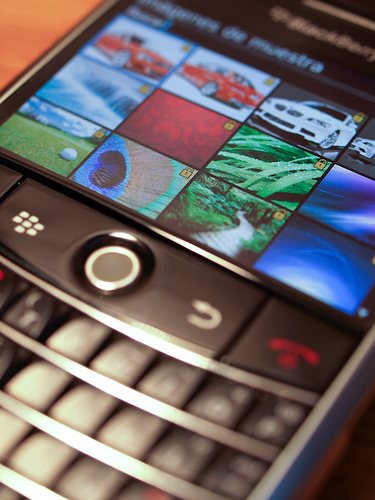The "beginning of the end" for BlackBerry?

With Android and iOS dominating the sales charts and the headlines, it’s sometimes hard to remember that the smartphone market once looked very different. Before these platforms rose to power, the smartphone market, such as it was, was largely dominated by Nokia and BlackBerry (formerly Research in Motion).
Now Nokia has given up on smartphones and mobile phones in general at least for now, agreeing to sell its handset division to Microsoft for $7.9 billion, and BlackBerry is in even more dire straits.
The company’s market share has fallen from some 20% at the height of its popularity in 2009 to as low as 1.5%, according to some estimates.
The announcement that BlackBerry has signed a letter of intent with a consortium led by shareholder Fairfax Financial Holdings involving a proposal to buy out the company for US$4.7 billion ($5 billion) - and take the Canadian company private - came as a surprise to no-one.
After all, word of the provisional deal came days after BlackBerry revealed it will cut 4500 jobs, or around 40% of its remaining workforce, and predicted a net operating loss of around $1 billion for its fiscal second quarter.
The company also disclosed plans to refocus around its core enterprise and ‘prosumer’ market segments, and away from the general consumer segment.
Under the proposed transaction, the consortium would offer US$9 ($9.59) in cash for each BlackBerry share. Fairfax Financial already owns around 10% of the company. BlackBerry has until 4 November to solicit and evaluate a better offer, and the offer is contingent on due diligence - meaning the proposed price might be reduced or the offer withdrawn.
Ken Dulaney, a Gartner VP and distinguished analyst, said there is no guarantee a deal will still be on the table after the dust clears. “All this does is give Fairfax the right to look at the books,” he said. “They could renegue on the deal. There may be several pension funds in the deal and they may get scared if they don’t think there isn’t real value.”
But Dulaney feels that taking BlackBerry private is the right move at this time. “It’s the only move. All the bad publicity is cascading upon itself and customers are scared and leaving. They have to stop the bad publicity and they cannot do that while public.”
He likened going private to entering Chapter 11 bankruptcy proceedings in the US, in that it is a play to give companies time to “reorganise out of the spotlight”.
Jan Dawson, Ovum’s chief telecoms analyst, was much more critical of the move. “Taking BlackBerry private doesn’t solve the fundamental problems at the company,” she said. “Normally, companies are taken private in order to give a long-term strategy time to payoff without the hassles of short-term investor scrutiny. But BlackBerry’s key problem for the last couple of years has been the lack of such a long-term strategy.”
BlackBerry’s days as a handset maker may be numbered, Dawson said. “We’re likely seeing the beginning of the end for one of the most iconic brands in mobile technology.”
Dawson said that the company’s announcement that it will no longer pursue the consumer market is essentially a deathknell for its device business, and the company’s other operations - such as applications and services - are all tied to a greater or lesser extent to its devices.
“If you strip out BlackBerry’s use of its QNX operating system for BlackBerry devices, you’re left with a business that’s worth less than $100 million,” Dawson said. “About the only part of BlackBerry that looks to be worth a significant amount at this point is its patent portfolio, and that certainly wouldn’t justify the purchase price on its own.”
Dulaney would agree that turning BlackBerry around will be a tough call. “[A privatised BlackBerry] will not be the same size and the hardware business might not be sustainable,” he said. “They could sell off pieces like patents or the software and services business ... but it will be tough, especially now that Microsoft and Nokia are together.”
But he said the company’s niche in the high security area - BlackBerry has traditionally been popular among public sector organisations with the need for secure devices, and its BlackBerry Messenger service is known for its encryption - may buy it some time.
If the deal goes through, BlackBerry won’t be the only high-profile technology company going private to pursue a turnaround. Two weeks ago, Dell shareholders approved a US$24.9 billion bid by founder Michael Dell and Silver Lake Partners to buy the company and delist it.
With analysts divided over the wisdom of going private, the success of the BlackBerry and Dell deals will be difficult to predict. But private tech companies can be successful. This Forbes slideshow lists 14 private US technology companies with over US$1 billion in annual revenue.
IoT demands alternatives as 3G sunset looms
The impending 3G shutdown is a daunting prospect for organisations across ANZ that rely on...
Broadband measurement shows online gaming stacks up
The ACCC's latest Measuring Broadband Australia report has found that consumer connections to...
BlackBerry stopping one cyber attack per minute
A new report from BlackBerry's Threat Research and Intelligence team highlights the...




